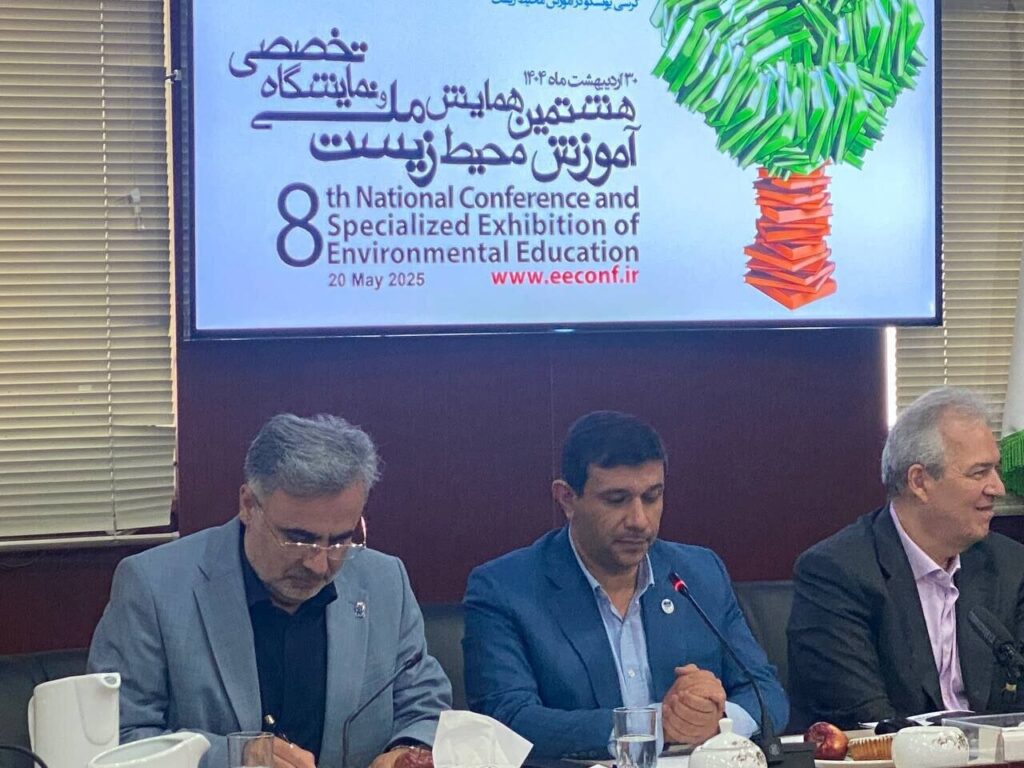Tehran – Environmental Education is placed in the list of major programs of the United Nations Education, Science and Cultural Organizations (UNESCO) in Iran, aiming to develop sustainable solutions and international cooperation to address environmental challenges.
From a UNESCO perspective, environmental education is a learning process that raises public awareness of the environment and its challenges. Equipping individuals with knowledge, skills, values, experience and goals to address these environmental issues, the IRNA cites Hassan Faltosi, Secretary-General of Iran’s UNESCO National Committee.
Officials made their remarks while working on the 8th National Conference and the Environmental Education Specialty Exhibition held on Tuesday.
According to this definition, environmental education includes achieving environmental awareness, understanding challenges and carrying out actions, Fartosi noted.
UNESCO helps the state and educational institutions develop and implement effective environmental education programs. It strives to maintain the environment through international programs in the fields of natural and earth science education, officials added.
These include the International Hydrology Program, International Geoscience and Geopolitics Program, Intergovernmental Oceanography Program, and International Basic Science Program. The Greening Education Partnership, he said, is one of the most important initiatives UNESCO has adopted to help the country help tackle climate change.
UNESCO works to reduce global change and the impact of water resources and promote education for the sustainable use of water resources. The organization is calling on member states to cooperate to address these challenges more effectively.
The 8th conference served as a platform for sharing ideas, expertise and achievements to promote sustainable development by conducting scientific research, utilizing modern technology and developing innovative solutions.
Address natural disasters and increase climate change resilience
In April, the international project to manage natural disasters and increase resilience to the impacts of climate change was officially launched by representatives from the Ministry of the Environment (DOE), the Japanese Embassy and UNESCO.
The project’s documents, funded by Japan, were signed on Monday by Ayen Slong, head of the UNESCO Tehran office, and Ahman Korusand, DOE’s Directorate of International Affairs.
The main objectives of this project include developing flood hazard maps, establishing early warning systems, assessing and managing agricultural drought risks, and empowering communities, particularly women and young people, to prepare effectively to respond to disasters and crises.
The project also aims to develop scientific and technical infrastructure in crisis management with the potential to become a regional model for combating climate change.
Referring to the challenges of climate change, DOE director Shina Ansari highlighted the importance of public participation, Indigenous knowledge and modern technology in disaster risk reduction.
Aien Slong, head of the UNESCO Tehran office, praised the environmental cooperation between the two organizations, highlighting the importance of prioritizing science and raising awareness in the fight against climate change.
According to the country’s former permanent representative and ambassador of the Food and Agriculture Organization (FAO), climate change has had a major impact on the agricultural sector and food security in many countries, and in Iran, the most important.
In some parts of the country, temperatures have risen 2 degrees, but the global maximum temperature is 1.5 degrees.
Climate change also changes plant growth patterns and disrupts the nutritional value of crops, he emphasized.
Furthermore, the unexpected effects of climate change, such as drought, floods and landslides, all have impacted food security.
mt/mg

